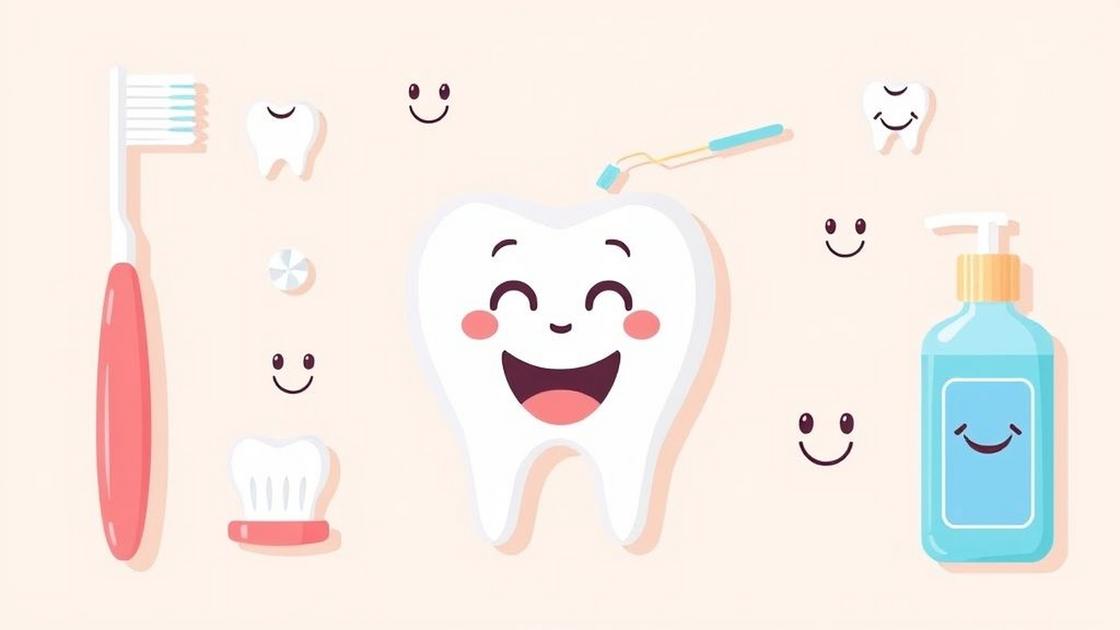Are you struggling with a nagging toothache but want to avoid a visit to the dentist? You’re not alone. Many people experience tooth pain, and addressing it naturally can seem daunting. By exploring how to stop toothache naturally without a dentist, you’ll uncover effective remedies that can ease your discomfort. Let’s delve into simple techniques and inviting solutions that might just get you smiling again.
Understanding Toothache: Common Causes and Symptoms
Toothaches can strike unexpectedly and bring discomfort that disrupts daily life. Understanding the common causes can help pinpoint how to find relief. Typically, toothaches are caused by:
- Cavities: Decay due to bacteria that erode tooth enamel can lead to pain.
- Gum Disease: Inflammation and infection can cause soreness and sensitivity.
- Dental Abscess: A pocket of pus that results from infection can create severe pain.
- Tooth Sensitivity: Sudden pain from hot or cold foods may indicate worn enamel or exposed roots.
- Jaw Problems: Issues like TMJ can cause discomfort related to tooth pain.
- Sinus Issues: Sometimes dental pain stems from sinus congestion.
These common triggers manifest through symptoms such as throbbing pain, sensitivity to stimuli, swelling, and sometimes fever. Recognizing these symptoms is the first step toward finding effective natural relief.
Natural Remedies: Herbal Solutions for Tooth Pain
Many women seek solace in nature’s remedies to alleviate tooth pain without relying solely on medication or dental visits. Here are some herbal solutions for relief:
- Clove Oil: Known for its analgesic properties, applying clove oil can numb pain effectively. Just dab a cotton ball in the oil and place it on the affected area.
- Garlic: This culinary favorite has natural antibacterial properties. Crushing a garlic clove and mixing it with salt can create a paste that combats bacteria and provides relief.
- Ginger: Chewing fresh ginger or using ginger tea can help reduce inflammation and swelling associated with toothaches.
- Turmeric: This warm spice has curcumin, known for its anti-inflammatory benefits. A turmeric paste can be applied to the affected area.
These natural remedies not only soothe pain but also address underlying issues, empowering women to take control of their oral health.
Eating Your Way to Relief: Foods That Help Toothaches
What you eat plays a vital role in dental health and can either aggravate or relieve tooth pain. Foods that can help ease discomfort include:
- Yogurt: Probiotics found in yogurt help maintain a healthy balance of bacteria in the mouth.
- Cheese: Eating cheese can help neutralize acids in the mouth, protecting your teeth.
- Leafy Greens: These are packed with vitamins and minerals that strengthen teeth and gums.
- Apples: Crunchy fruits like apples can help clean teeth naturally and stimulate gums.
- Green Tea: Rich in antioxidants, green tea has properties that can help combat bacteria.
Incorporating these foods into your diet can boost your overall oral health while providing immediate relief from toothache symptoms.
Essential Oils: A Soothing Approach to Tooth Pain
Essential oils are a great way to find comfort during a toothache. Their healing properties can improve both physical pain and emotional distress:
- Peppermint Oil: Its cooling effect can soothe sore gums and alleviate pain. Apply diluted oil with a cotton ball to the affected area.
- Tea Tree Oil: Known for its antibacterial properties, this oil can help fight the bacteria causing the pain. Dilute it and apply it carefully.
- Lavender Oil: While it promotes relaxation, lavender oil can also aid in reducing pain. Use it in a diffuser or diluted on the skin.
By embracing essential oils, women can create a soothing ritual for themselves that not only helps with dental issues but also promotes relaxation and emotional balance.
Warm Compresses: A Simple Yet Effective Home Remedy
Warm compresses offer a straightforward approach to alleviating tooth pain. The warmth can increase circulation and soothe discomfort:
- Usage: Simply soak a clean cloth in warm water, wring it out, and apply it to the outside of your cheek where the pain is localized.
- Duration: Keep the compress in place for about 15-20 minutes.
- Effectiveness: This method not only eases immediate pain but may also promote overall relaxation, helping to calm any anxiety surrounding oral discomfort.
This simple remedy can be a comforting routine that helps women tackle tooth issues with kindness toward themselves.
Hydration and Its Role in Oral Health
Staying hydrated is essential for maintaining oral health. Water plays a critical role in:
- Cleaning the Mouth: Drinking water helps wash away food particles and reduce acidity in the mouth.
- Stimulating Saliva: Proper hydration aids in saliva production, which is a natural defense against cavities.
- Soothing Sensitivity: Keeping the body and mouth hydrated can help reduce sensitivity and irritation.
Encouraging regular water intake can empower women to prioritize their health while mitigating tooth pain.
Good Oral Hygiene: Preventing Future Toothaches
Establishing a consistent oral hygiene routine is vital. Good practices include:
- Brushing Twice Daily: Regular brushing with fluoride toothpaste helps prevent cavities.
- Flossing Daily: Flossing removes food particles that brushing can’t, preventing gum disease.
- Regular Checkups: While this post focuses on natural fatigue, regular dental visits are important for maintenance.
By adopting these habits, women can take proactive steps in their dental care journey, alleviating any fears around tooth pain and enhancing their overall well-being.
The Power of Salt Water Rinse for Oral Comfort
A saltwater rinse is a remarkably simple yet effective remedy for toothaches:
- Preparation: Mix one teaspoon of salt in a glass of warm water.
- Usage: Swish the solution around the mouth for about 30 seconds before spitting it out. Repeat several times daily as needed.
- Benefits: This rinse can help reduce inflammation, clean the affected area, and promote healing.
This natural practice is not just for emergencies but can be a calming part of a daily routine for oral care.
Stress and Toothache: The Connection You Need to Know
Many women may not realize that stress can contribute to dental pain. Stress often leads to symptoms like:
- Teeth Grinding: Known as bruxism, this can wear down teeth and lead to pain.
- Jaw Tension: Stress can create tightness in the jaw, exacerbating discomfort.
Finding methods to manage stress can positively impact oral health. Practices like deep breathing, meditation, or gentle exercise can help relieve tension and prevent the physical manifestations of stress.
Finding Peace: Emotional Well-Being and Dental Health
Emotional well-being is integral to overall health, including dental. Women often juggle stressors that can amplify dental issues:
- Mindfulness Techniques: Incorporating mindfulness can reduce anxiety and promote a healthier mindset regarding dental care.
- Positive Affirmations: Encouraging self-love and compassion can improve outlook and foster a healing environment.
- Support Systems: Connecting with others facing similar challenges can lend emotional support and encouragement.
Emphasizing emotional health can pave the way for better physical health, making it easier to care for teeth and gums.






